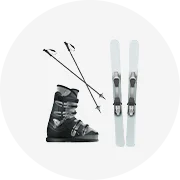

Swimming Pool Large Cartridge Filter Cartridge Compatible With CC150 PAP150 C-9415 R173216 FC-0687 Pleated Pool Filter


Swimming Pool CFLH30 Factory Direct Outdoor Swimming Pool Disinfection Salt Chlorinator Salt Chlorine Generator






















PVC pool liners are a type of material used to create a waterproof barrier for swimming pools, ensuring that the water contained within the pool does not leak out. These liners are typically made from PVC (polyvinyl chloride), a durable and flexible plastic polymer that can withstand the harsh conditions of outdoor environments and the constant presence of water. Designed to fit the shape and size of the pool, they are an essential component for both residential and commercial pool owners, providing a clean and smooth interior surface that is comfortable for swimmers and easy to maintain.
The primary function of a PVC pool liner is to prevent water from seeping through the pool's structure. It is a cost-effective solution that offers a high degree of customization, making it suitable for various pool shapes and sizes. The installation process involves attaching the liner to the pool's walls, creating a tight seal that can withstand the pressure exerted by the water. This also means that the liner must be able to handle the weight of the water and the wear from the swimmers, which is why PVC's durability is crucial for its performance in a pool environment.
PVC pool liners cater to a variety of users, from private homeowners looking to maintain their personal swimming spaces to commercial establishments such as hotels, gyms, or public pools that require a long-lasting and reliable solution. Furthermore, they come in a range of designs and colors to complement the pool's aesthetics while providing the necessary functionality.
The PVC pool liner market offers a diverse range of options tailored to meet specific needs and applications. Here's an overview of some common types:
Flexible PVC Liners: These are the most commonly used liners due to their versatility and cost-effectiveness. They are available in various thicknesses and can be customized to fit different pool shapes. Flexible PVC liners are often used in residential pools.
Rigid PVC Liners: Made from a more rigid material, these liners are pre-formed to fit into specific pool shapes. They are typically used in commercial applications or in pools where a more robust solution is required.
Fiberglass Reinforced PVC Liners: These liners have a layer of fiberglass for extra strength and durability. They can be used in a variety of pool types, including fiberglass and concrete pools.
Themed or Patterned PVC Liners: Designed with aesthetics in mind, these liners come in various patterns such as geometric designs or nature themes to enhance the look of the pool.
Customizable PVC Liners: These offer unique features like embossed designs or personalized logos. They are popular choices for pool owners looking to make a statement with their aquatic space.
Selecting the right PVC pool liner is crucial for businesses that cater to the swimming pool industry. When choosing liners for resale or commercial use:
Consider the application: Whether it's for a small residential pool or a large commercial facility will determine the appropriate thickness and specifications required for your application.
Evaluate material quality: High-quality materials ensure longevity and resistance to wear and tear. It's essential to look for liners that are UV-resistant and capable of withstanding your specific climate conditions.
Assess customization options: The ability to customize liners with specific measurements and designs can be an important selling point. Businesses should consider suppliers that offer such customization capabilities.
Environmental considerations: For eco-conscious buyers, selecting eco-friendly options like recyclable materials or non-toxic prints can be an important factor.
Alibaba.com stands as a premier online marketplace connecting businesses with a vast selection of wholesale PVC pool liners from trusted suppliers around the globe. With an extensive range of colors and patterns available in the platform's inventory, Alibaba.com facilitates finding the perfect match for any commercial pool project's design requirements while ensuring a high standard of quality.
Purchasing through Alibaba.com offers businesses peace of mind with services like Trade Assurance that protect payments until delivery is completed. The platform's commitment to simplifying international trade is evident through its user-friendly interface and mobile accessibility—allowing buyers to communicate with suppliers in their local language and handle orders on-the-go.
By choosing Alibaba.com for sourcing PVC pool liners, businesses benefit from a global network of suppliers offering materials that are eco-friendly, durable, and available in custom sizes and designs. This diversity ensures that whether a business is working on a small residential project or a large-scale commercial endeavor, they'll find suitable options that align with their specific requirements without compromising on quality or aesthetic vision.
The lifespan of a PVC pool liner can vary depending on the quality of the material and how well it is maintained. Generally, a high-quality PVC pool liner can last for several years with proper care.
Yes, PVC pool liners can be customized to fit various pool shapes and sizes. It is important to provide accurate measurements to ensure a proper fit.
Yes, there are different grades of PVC pool liners available, with some specifically formulated for heavy use in commercial settings and others suitable for residential pools.
For commercial pools, consider durability, ease of maintenance, and resistance to wear and tear. Liners designed for high-traffic or rough use will typically be more robust.
Maintenance for a PVC pool liner includes regular cleaning with appropriate pool brushes and treatments, checking for any damage or wear, and ensuring proper water chemistry and cleanliness.
While it is possible to install a PVC pool liner yourself, it is recommended to have the liner professionally installed to ensure a proper fit and to prevent any issues during installation.
Yes, small tears or punctures in PVC pool liners can often be repaired using patch kits designed for this purpose. Larger tears may require sections of the liner to be replaced.
Permit requirements can vary by location and type of pool. It is essential to check local regulations before installing a PVC pool liner.
The size of a PVC pool liner should match the dimensions of the pool's interior, accounting for both length, width, and depth measurements, as well as any additional features like steps or seating areas.
Some PVC pool liners are specifically designed to be more resistant to the chemicals in saltwater pools. However, it's important to verify that the liner material you choose is compatible with saline environments.
Yes, there are eco-friendly options available that use materials with less environmental impact. Suppliers may offer liners made from recycled materials or those produced using eco-friendly manufacturing processes.
PVC pool liners come in a wide range of colors, including solid hues and printed patterns. The choice of color can depend on personal preference or the desired aesthetic for the pool area.
To ensure waterproofing, select a high-quality liner with good seam strength and consider using a sealant around fittings and seams when necessary.